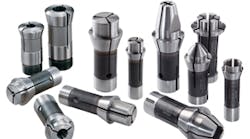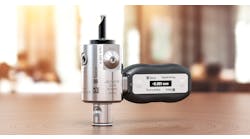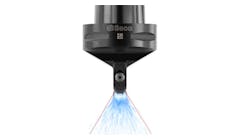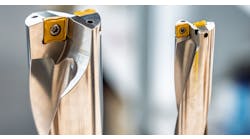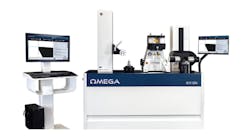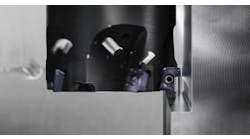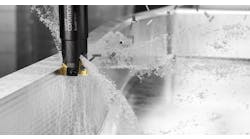Hardinge stocks standard headstock collets, extended-nose, emergency styles, pickoff collets and carbide guide bushings for Swiss turning.
Producers of small precision parts — in medical or aerospace manufacturing, for example — recognize the value of a high-quality collet, and that means one that is free of burrs, with guaranteed concentricity. Such a collet would be finish-ground to provide a smooth and concentric gripping area (order hole) for the bar stock or workpiece. That’s the promise of Hardinge with its line of Swiss-style collets, which are inspected on a Hardinge Super-Precision® (0.000015-in. TIR) headstock before they arrive at the stockroom.
Hardinge offers headstock collets, pickoff collets, carbide guide bushings, bar loader collets and custom manufactured solutions for producing small-diameter medical and aerospace parts. “We’ve added several new collets and guide bushings to our inventory to meet customer demands and support newer machine models,” explained product manager Rick Schonher of Hardinge’s Workholding Division. “Hardinge stocks standard headstock collets, extended-nose, emergency styles, pickoff collets and carbide guide bushings for most machine brands. We are also relied on for custom manufactured solutions for Swiss turning.”
Keeping bar stock unmarked, holding a small diameter on center, holding a thin-wall part, ejecting parts and working with extruded bar shapes … these are common gripping dilemmas for Swiss-turning shops. Hardinge solutions include special-accuracy order holes of 0.0005 in. or better for holding strict tolerances, as well as micro-inch finish order holes. Also, it manufactures collets and guide bushings for D-shaped and other extruded stock shapes, along with pickoff collets with a built-in spring ejector that pushes the part into a basket or conveyor to automate the process.
Hardinge has engineered pickoff collets for Citizen, Star, Tornos, Tsugami, and other Swiss-type machine applications. Other special Swiss application collets include stepped, tapered, chamfered, radius, and off-center order holes, and over-the-shoulder collets. It has solutions for other gripping problems, too, like short gripping, non-marking, slippery materials, push back, tool clearance, multi-pass machining, large diameters and matched keyways. Angular or zigzag slotted collets hold hex or geometric shapes and keep chips and coolant from entering the spindle area.
Hardinge has partnered with Citizen Machinery America Inc. to produce adaptive guide bushings and over-grip collets for cost-conscious shops. The adaptive guide bushing allows use of less expensive, non-ground bar stock. This system uses air pressure to open and close the guide bushing collet as the size of the material being machined changes. A kit from Citizen must be installed in the machine to permit the use of the adaptive guide bushing collet. Kits are available for new Citizen machine models. It also can be retrofitted to some existing machines.
ID gripping pickoff collets may be the solution for parts with delicate outside threading or a thin wall, and may eliminate the time and cost needed for second operations. Hardinge manufactures bar loader collets for FMB, LNS, and Robobar bar feeders, too, and other bar-loader brand collets and Escomatic counter collets and guide bushings can be manufactured to order.
Hardinge stocks headstock collets, pickoff collets and guide bushings in many styles and sizes. Standard round guide bushings are carbide-lined to keep the stock clean and unmarked. Hardened steel or Meehanite-lined bushings can be made for certain stock that is not compatible with carbide. Standard extended-nose headstock and emergency collets feature added nose length (straight or tapered) for doing pickoff work or to compensate for tooling interference. Emergency collets are handy to have in your tool drawer and can be machined to the desired bore size right in your shop to accommodate small runs or for use in a pinch until a desired size collet arrives.
“Hardinge has dedicated work cells for manufacturing Swiss turning products to rigid specifications, including material and heat treatment,” according to Schonher.
